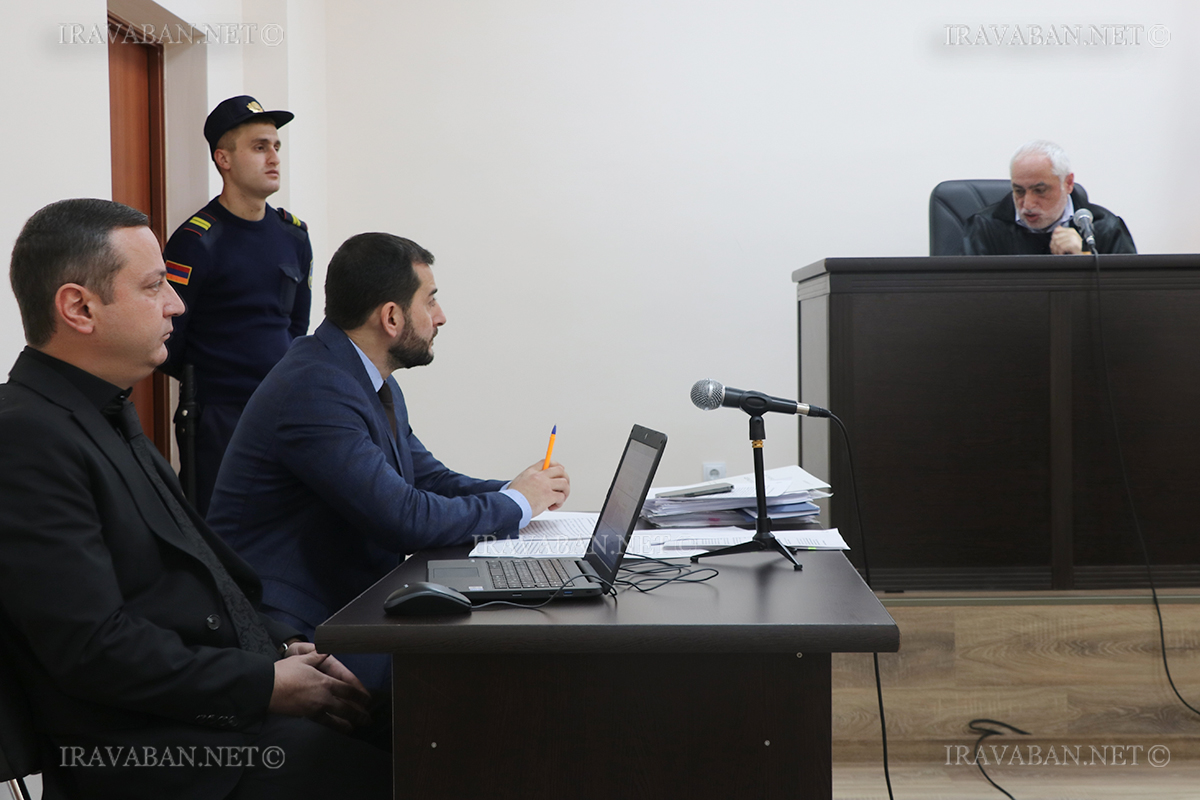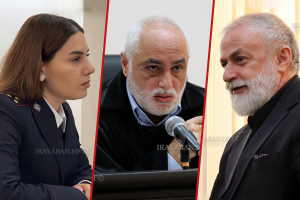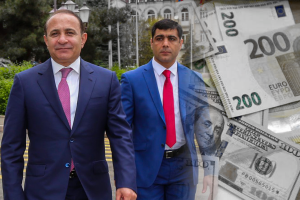On 17 March, the Anti-Corruption Civil Court continued consideration of the claim of the General Prosecutor’s Office regarding the confiscation of the property and funds of allegedly illicit origin of Ani Lyova Sargsyan, the niece of the 3rd President of the Republic of Armenia Serzh Sargsyan
The respondent again objected to the photo and video recording of the court session. The court, presided by Judge Karapet Badalyan, allowed video recording of the court session, except for the representatives of the defendants.
According to Iravaban.net, the representative of the defendant, Vahagn Grigoryan, submitted a petition regarding the application of the statute of limitations. According to the lawyer, since the competent body considers the discussed case as a competitive, civil procedure legal relationship, then they claim that in addition to the Law on Confiscation of Property of Illegal Origin, is applicable to the private legal relationship, but also the general period of limitation provided by the of action defined by the Civil Code shall apply to the private legal relationship shall apply as well.
“Yes, the Law on Confiscation of Property of Illegal Origin has established a certain period, if it is missed, the claim is considered to have been filed in violation of the statute of limitations, but it is not stipulated anywhere that this period by itself excludes the operation of the periods established by the current Civil Code. We think that the statute of limitations has passed in the mentioned context,” Vahagn Grigoryan said, adding that they have not yet submitted evidence regarding the petition.
According to him, the subject of legal relations, in this case, is the Republic of Armenia, not the Prosecutor’s Office. In this context, the representative of the respondent argued that the Republic of Armenia, which is a party to the proceedings, has always had sufficient tools to highlight the alleged events set forth in the statement of claim, gather evidence and submit claims.
“If the claim of the competent body is even valid, which we categorically disagree with, then RA, which is a party to legal relations, in the sense of that decision, has demonstrated passive behavior, submitted the claim only in 2022. We believe that the three-year period defined by the Civil Code is also applicable to the submitted claims, and we believe that it has been violated. Please apply statute of limitations and reject the claim,” Grigoryan said, concluding his speech.
According to the representative of the defendants, the statute of limitations has been missed, because no lawsuit was filed in court within 3 years after the criminal case initiated on 29 June, 2018, regarding the cases of concealment of property subject to declaration and illicit enrichment. Tigran Yenokyan, Deputy Head of the Department for Confiscation of Property of Illicit Origin, asked the respondent to clarify why he thinks that the legal relations are of a private nature.
Vahagn Grigoryan mentioned that in all their objections presented to the competent body, where it is stated that competition and equality of rights do not work in this case, the competent body expresses a position that this is an ordinary civil case and there is no problem of special relationship. “If we are plaintiffs and defendants in an ordinary case, then the Civil Code should be applicable in terms of statute of limitations.”
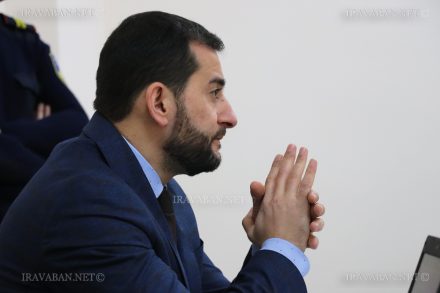
Tigran Yenokyan
Tigran Yenokyan mentioned that this is just the special legal relationship, which is regulated by the Law on Confiscation of Property of Illegal Origin and does not fit into the domain of public or private. According to him, statutes of limitations are not considered according to the rules of civil procedure. “I think this petition is groundless on this basis.”
The court inquired from the defendant’s representatives what kind of facts are subject to proof within the framework of this motion.
“The fact of when the Republic of Armenia knew or could have known about the violation of its rights is subject to proof. We bear the burden of proof,” the lawyer said.
The court adjourned for 10 minutes, then came back and said that there is a basis for applying a special statute of limitations, as it is provided for in Article 8 of Law on Confiscation of Property of Illegal Origin, and placed the burden of proof on the parties. The defendant must prove that the claim was filed after the expiration of the statute of limitations, and the plaintiff must prove that it was filed during the statute of limitations.
The judge informed that the claim was handed over to the court and gave the defendant time to verify it and check the deadline for filing it. After the end of the break, Vahagn Grigoryan announced that the filing of the claim was interrupted by the statute of limitations, and they believe that the filing was not done properly.
“After studying the information available in the case, we believe that the claim was not submitted in the prescribed manner, with the following reasoning: the application was submitted to the court not as an application, but as a document attached to a specific application. If something filed as an application is stamped with an entry, the pleading filed is that application. We consider the rest as the evidence submitted with the application. We believe that the claim, as a procedural document, in this case, was not submitted in the manner prescribed by the competent authority,” the lawyer said, adding that the letter was not signed by the plaintiff, but by the Head of the Department for Confiscation of Property of Illicit Origin, who is not an authorized person in the case. Vahagn Grigoryan stated that if he or his colleagues had made an attempt to file a claim or appeal to the court in such a way, they are sure that this claim would at least be viewed as problematic.
Tigran Yenokyan, Deputy Head of the Department for Confiscation of Property of Illicit Origin explained: the letter was signed by the Head of the department, who is a superior prosecutor according to the law “On Prosecution”. In addition, contacts of official bodies are made between heads, as in this case in the format of “head of department-state court”.
“The prosecution is a unified system, and when a lawsuit is submitted to the court by the Prosecutor’s Office, it naturally has an accompanying letter. It is not appropriate to consider the statement of claim sent in writing, as if the statement of claim had not been filed with the court, it is inappropriate,” Yenokyan said.
The court finished the examination of the motion for limitation of claim, announcing that the court act on it will be published on 21 March.
Yevgenya Hambardzumyan
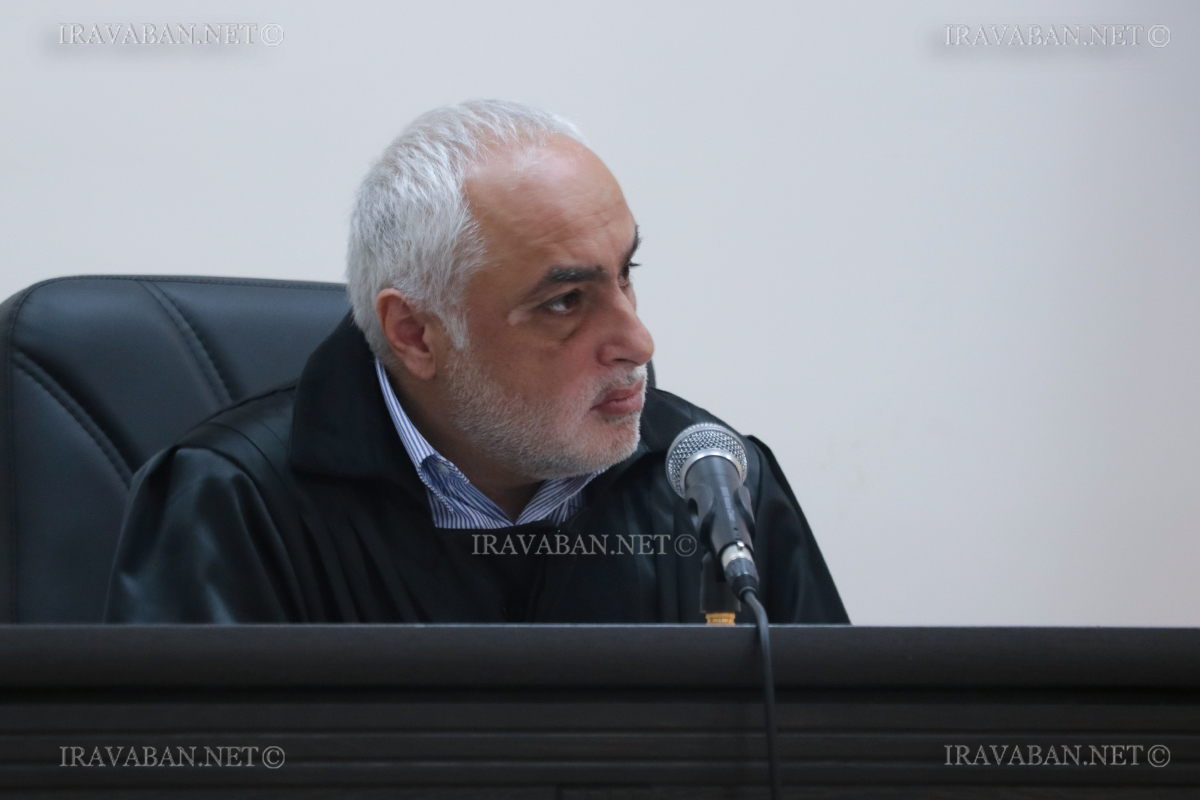
Karapet Badalyan

